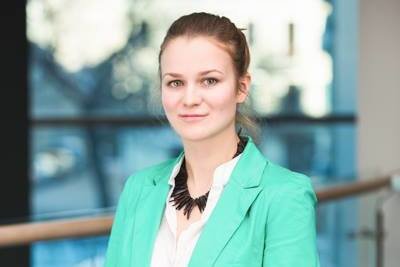
Morgana Daniele
IIRPS VU Alumni, author of the best Eastern European and Russian studies Master's thesis
Morgana, you graduated from the Faculty of Philology but chose to do your Master’s here in IIRPS VU. What led you here?
I got both my Bachelor’s and my Master’s from the Faculty of Philology. This was my second Master’s. Interestingly enough, I wrote my thesis on the representation of psychoactive substances in cinema and literature. My career choices led me to the field of drug policy, I work in the field both in national and international institutions. I always valued research and I am a firm believer in life long learning so I decided to add academic knowledge of political science to my professional experience.
The topic of your Master’s thesis is “Drug Policy (non)change in Lithuania: the Role of Street-Level Bureaucracies”. Why did you choose this topic?
Drug policy in Lithuania is not a popular or well-researched topic so I often kid that the stigma of drugs often surfaces not only when talking about drug users, but also when talking about the academic community. Maybe the question doesn’t seem serious or solid enough? Internationally it is a question of huge importance, but we don’t talk about these issues often enough, this topic is largely ignored and the cost of this can be measured in human lives. I’m very happy to see some debates starting on the issue – in the civil society, higher education institutions and even the Parliament.
You wanted others to learn more about drug policy, but did you find anything that was a discovery for you?
Certainly. That’s what I love about research. You feel like you know everything on the topic and that nothing can surprise you, but then science magically pulls a rabbit of the hat! I analyzed the Lithuanian drug policies in my thesis and why they didn’t change since 1961. Back then everybody believed that punishment was the only solution. Half a century has passed and there were lots of scientific evaluations, other countries learned from their mistakes and changed the approach to healthcare. Lithuania, on the political level, did the same. However, the system is not functioning well – we are a “hotspot” for HIV, one of the leaders in terms of deaths from overdose, soon we’ll probably be among leaders in incarceration for drug related crimes. My research helped me come up with a new solution on healthcare-based policy implementation in Lithuania. I thought I had seen every possible solution, acquainted myself with every possible methodology and yet I managed to come up with something new!
In terms of your study experience at IIRPS VU, what do you value most?
Openness, I would say. My topic was not only accepted but generated sincere interest. The major weakness of academia is its tendency to stagnate. New research topics, new outlooks and new questions can hardly find their way and it is absolutely necessary if society is to change. VU IIRPS is different in that sense – it’s inquisitive and lively. This is where the spark of science lies.







